Connected Horsemanship
Positively influencing the horse world
by empowering equestrians to connect with their horses
through a relationship-based education in equine management, psychology, and horsemanship.
Connected Horsemanship Services

Private Lessons
One-on-one instruction towards your personal horsemanship goals.
$75

Semi-Private Lessons
Two well-matched students learning together with their instructor.
$65

Group Lessons
Small groups of 3-4 well-matched students get the chance to learn new activities together.
$60

Check out our Spring Clinic dates!
3/29/25– Intro to Horsemanship with Brooke and Kody. Want to start working with horses but not sure where to begin? This clinic is perfect for you!
Cost: $100/person
10am-12pm ages 14 through adult
1pm-3pm ages 6 through 13
4/12/25- Groundwork Over Obstacles with Brooke and Kody. Build a solid foundation with your horse on the ground to help you in any situation. Bring your own horse or partner with one of ours!
Cost: $100/person
10am-12pm ages 14 through adult
1pm-3pm ages 6 through 13
5/10/25– Connecting Groundwork to Riding with Brooke and Kody. Seamlessly transfer the important foundations of groundwork to the saddle. Bring your own horse or partner with one of ours!
Cost: $200
10am-2:30pm ages 14 through adult
$25 to audit. Email Kody@TakeHeartCounseling.com to register.

Parents- are you kiddos interested in ranch life? Do they need something to look forward to during the week?
Youth Night Out on the Ranch runs every Wednesday in April from 6-7:30pm for youth ages 8-16.
Join our instructors Brooke and Kody for a fun evening on the ranch! Come to one or all! Each night is different! Learn about all the animals on the ranch but with a special focus on our horses!
Cost: $40/night
For more information, email Brooke@TakeHeartCounseling.com
Our approach to horsemanship is called natural horsemanship and is based on building a relationship with the horse through trust, respect, and understanding. We believe horsemanship is about so much more than riding. Our emphasis is on how to effectively communicate and bond with a horse from the ground up. Once a firm foundation is built from the ground, we transition to riding, taking the principles from groundwork and translating them to the saddle. We do not teach a specific discipline, rather the basics of good horsemanship and riding whether you ride english or western, for show or for pleasure. We want to equip and empower you to meet whatever goals you have for horsemanship!

- Kids 6+ who are horse crazy and want a family-friendly, positive and safe environment in which to learn and grow.
- Adults of all ages who rode as kids but want to pursue it as an adult, or who want to own their own horse one day and know how to care for it well.
- Horse owners who are struggling to build a deep bond with their horse or to fix a training issue while maintaining connection and relationship. We take our trauma-informed approach with us into working with horses, acknowledging what they have experienced, and that building relationship can be hard for horses, too.
Do I sign up for horsemanship, or therapy?
Horsemanship is not for those looking for therapeutic services, but for those who may benefit from time with a horse or just want to learn about horsemanship in a relaxing, positive environment. This is also a great opportunity for your child or teen to learn important life skills such as patience, respect, empathy, and assertive communication, and to receive valuable 1-on-1 care and mentorship from their instructor.
We have listed some of the difference between Horsemanship and Equine Therapy below.
- Facilitated by an instructor who is not a therapist but is trained in various aspects of horsemanship.
- Goal is to teach the various aspects of horsemanship from a relationship-building perspective.
- Feels therapeutic. We all feel better after being with horses!
- Is Fun!
- You will learn a lot about yourself and life as you go, just based on the nature of horses- they will bring things up if you are listening. Your instructor will be a mentor as you make connections and learn life lessons.
- You will learn to ride (if you want, of course!). You will also learn ground work for building relationships, and horse care skills.
- Facilitated by a licensed (or pre-licensed) counselor, psychologist, therapist, or life coach with a master’s degree or doctorate in the mental health or related field.
- Goal is to work through various aspects of mental, emotional, or social struggles, with a treatment plan and goals specific to the client.
- IS therapeutic. Each session is designed by your therapist to meet your specific treatment goals, using evidence-based interventions.
- Can be fun! Let’s face it, being outdoors and working with these awesome animals is way more fun than sitting in an office. The horses bring a unique sense of humor to our “stuff.” We still have hard sessions, but overall we incorporate play and laughter as part of the healing process.
- You will be guided by your therapist through a process that naturally brings up a lot of opportunity for insight and learning about your patterns of doing life, as well as gives opportunity to make changes to those patterns if you wish.
- You may learn riding, ground work, and horse care, but the “skills” are not the focus. Our focus stays on the process, or the “how and why” we do things, because it helps us identify those patterns and things about us that we would like to change.
Ready to start your
life changing journey?
Wherever you are at on your journey, we are here for you. Our human and equine team will walk alongside you so you can find hope, healing, and wholeness in your life. You are worth it. Don't hesitate, reach out to us today.
